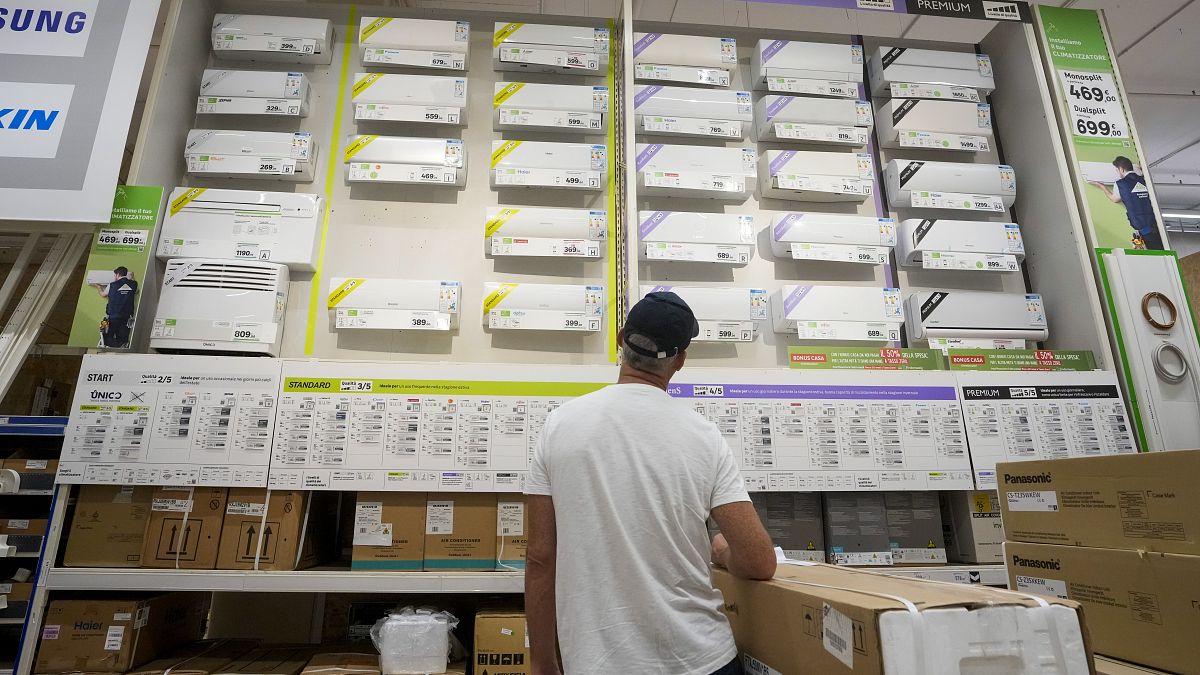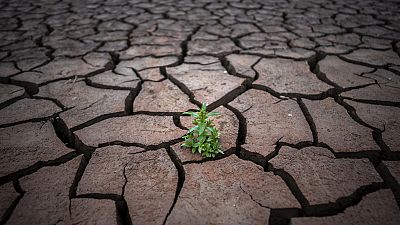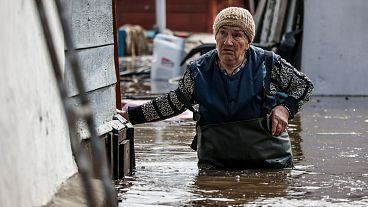A study found that waste heat generated by a city’s worth of air conditioners during a heatwave can raise the outside temperature by more than 2 degrees Celsius.
As Europe faces more frequent and more intense heatwaves, you might have considered taking the plunge and buying an air conditioning unit.
But while you'd be forgiven for thinking it’s cooling things down, it’s actually doing the exact opposite, it’s heating things up.
In France, the use of air conditioning has become the subject of debate after left-wing MP Mathilde Panot said during an interview, “the temperature of a city can be increased by up to 2 degrees Celsius due to the use of AC [air conditioning].”
Was she right?
Where did the French MP get this statistic from?
It comes from a study published in 2020 that was based on a scenario in which air conditioners are used in all buildings of a city like Paris to maintain an interior temperature of 23 degrees Celsius during a heatwave.
Temperature increases due to air conditioning (AC) use "depend on the time of day and the characteristics of the heatwave, mainly its intensity", according to the study.
The scientists used the deadly 2003 heatwave which killed more than 14,000 people in France to model their predictions.
They found that, after "Nine days of a heat wave similar to the one of 2003," the systematic use of AC during that time would increase air temperature "by up to 2.4°C".
Why does air conditioning increase the temperature?
How is that possible? Because air conditioners work like a heat pump, cooling a room by releasing hot air outside.
Air conditioners use more electricity than any other appliance in the home. They consume 10% of global electricity and leak harmful planet-warming gases into the atmosphere.
The link between AC use and increasing temperatures in cities has already been documented.
According to research published in 2014 in the Journal of Geophysical Research: Atmospheres, excess heat generated by a city’s worth of air conditioners can increase the outside temperature by 1 to 1.5 degrees Celsius at night.
And as cities are only likely to grow hotter as a result of climate change, that means that citizens are likely to demand more indoor air conditioning.
Heatwaves that would have been a once-in-a-decade event in the 1800s iare now more intense and happen nearly three times as often, according to the latest IPCC report.
Air conditioner use is set to triple worldwide by 2050
In 2019, 20% of EU households owned an AC unit, according to the European Environment Agency.
The number of air conditioners worldwide is predicted to rise from 1.6 billion units today to 5.6 billion units by the middle of this century, according to a 2018 report issued by the International Energy Agency.
By 2050 all the air conditioners in the world would use as much electricity as China does for all activities today, according to the report's predictions.
What are some alternatives to air conditioners? The scientists behind the 2020 study suggest other options to help cool down cities: including creating more green spaces, insulating buildings, and better advising the population on how to keep cool during a heatwave.
If all of these measures are taken, the study claims these actions could significantly "cool outdoor air temperatures up to 4.2°C at night".



